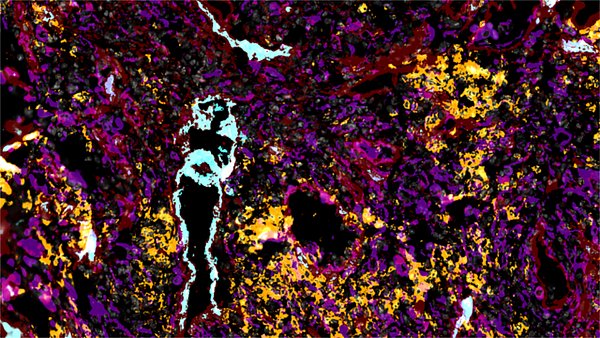The Hopp Children’s Cancer Center Heidelberg (KiTZ) is a joint institution of the German Cancer Research Center (DKFZ), Heidelberg University Hospital (UKHD) and the University of Heidelberg (Uni HD).
Sarcomas are rare but aggressive cancers that are the third most common type of cancer in children and adolescents after blood cancer and brain tumors. Soft tissue sarcomas, which arise from connective, muscle or fatty tissue, pose particular challenges for research: their enormous biological diversity and the lack of suitable preclinical models have significantly hampered the development of effective treatment approaches for decades. Compared to many other types of cancer, therapeutic advances in sarcomas have lagged significantly behind those in other cancers.
A team of researchers from the Hopp Children's Cancer Center Heidelberg (KiTZ), the German Cancer Research Center (DKFZ) and Heidelberg University Hospital (UKHD) has now developed novel mouse models for investigating therapeutic approaches against sarcomas.
“Unlike the laboratory mouse models commonly used in cancer research, these mice have a functioning immune system, enabling the systematic investigation of immunotherapies for the treatment of sarcomas under realistic conditions. In addition, the method is more efficient and requires significantly fewer animals than conventional methods, in which mice are crossbred over several years in order to study a particular type of sarcoma,” explains the study's first author Roland Imle from KiTZ and UKHD.
According to the study, the sarcomas induced in the mice show remarkable similarities to human sarcomas, both microscopically and at the molecular level. The new model system also has other advantages, according to the authors: the tumor cells obtained from the mice can be stored frozen, reused as tumor models and therefore easily exchanged between research institutions to investigate tumor-specific target structures that represent promising targets for new immunotherapies, for example.
“Our approach allows us to study a large number of genetically different soft tissue sarcomas in animal models in order to investigate how these cancers develop. With this knowledge, new immunotherapies for children and adolescents with soft tissue sarcomas can be developed and tested in clinical trials. Existing approaches can also be significantly improved,” emphasizes Ana Banito, head of the study at KiTZ and DKFZ. “Newly discovered mutations in patients can be quickly investigated in the model in this way.”
The new model system is already being used in several international research collaborations to develop new targeted therapies for the treatment of sarcomas.
Original publication:
Imle et al. Somatic gene delivery faithfully recapitulates a molecular spectrum of high-risk sarcomas. In: Nature Communications (Online publication, June 16, 2025)




